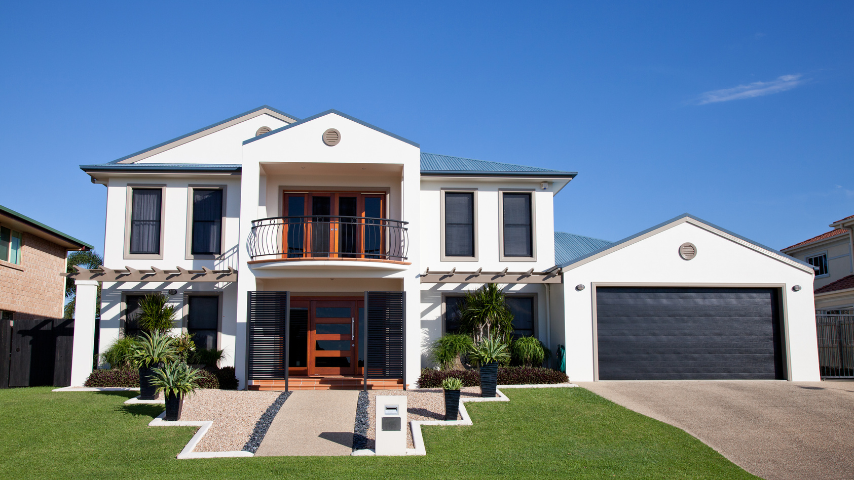Are you a first-time homebuyer looking to make the leap into homeownership? There’s no doubt that buying a house can be an exciting and rewarding experience. However, if not done properly, it can also lead to costly mistakes. To ensure your path to becoming a homeowner is successful, here are some of the most common mistakes made by first-time homebuyers and how you can avoid them.
1. Don’t rush into the home buying process without doing your research
Purchasing a home is a major decision that should not be taken lightly. Before making any commitments, it is important to conduct thorough research and have a clear understanding of the process. Rushing into the home buying process can lead to costly mistakes and regrets down the road. Take the time to gather information about the real estate market in your desired area, find a reputable real estate agent, and get pre-approved for a mortgage. Knowing your budget and understanding the steps involved in buying a home can give you the confidence to make an informed decision and find a home that meets your needs and budget. Don’t let the excitement of owning a home cloud your judgement – take the necessary steps to ensure a successful and stress-free home buying experience.
2. Don’t underestimate the cost of repairs and renovations that are necessary before moving in
Before buying a new home, it is crucial to consider the cost of necessary repairs and renovations before moving in. Underestimating these costs can lead to unexpected expenses that can quickly add up. It is important to get a professional home inspection to identify any issues that need to be addressed, such as faulty wiring, leaky roofs, or outdated plumbing systems. In addition, consider the cost of any cosmetic upgrades you may want to make, such as painting or flooring. It is better to budget for these expenses upfront rather than being caught off guard down the line. By taking the time to assess these costs, you will be better prepared to make an informed decision about purchasing a new home.
3. Don’t skimp on getting a home inspection – it can help you identify potential problems with the house before signing a contract
Before signing any contract on a house, it’s important to get a thorough home inspection. Some may be tempted to skimp on this process in order to save time or money, but that decision can ultimately lead to costly repairs down the line. A professional home inspector can identify potential problems with the property that may not be immediately visible, giving you peace of mind and saving you from unexpected expenses. From faulty electrical wiring to leaky roofs, a home inspection can help you make an informed decision about the house you’re considering purchasing, ensuring that you’re not left with any unpleasant surprises after you’ve moved in.
4. Avoid paying too much for a home – make sure to compare prices with similar properties in the area
When searching for a new home, it’s essential to do your due diligence and compare prices with similar properties in the area. Avoid the temptation to jump on the first property that catches your eye – take your time and research the market. By comparing prices, you can ensure that you’re not overpaying for your new home. Don’t be afraid to reach out to real estate agents and do your own research online to get a sense of the market. In the end, taking the time to compare prices can save you thousands of dollars and ensure that you get the best deal possible.
5. Don’t obsess over minor changes like paint colors or carpeting – they can be easily changed after you move in
When it comes to buying a new home or moving into a rental property, it’s only natural to want everything to be perfect. However, it’s important to remember that not everything needs to be settled in advance. Minor changes such as paint colors or carpeting can be easily changed after you move in. This means that you don’t need to spend countless hours fretting over such decisions. Instead, focus on the bigger picture and the more permanent changes you may want to make to the property. By keeping your perspective in check and remembering that minor changes can wait, you’ll be able to make more informed choices – and feel more relaxed throughout the process.
6. Don’t forget to factor closing costs into your budget when calculating how much you’re able to spend on a new home
Buying a new home is an exciting prospect, but it’s important to remember that the purchase price isn’t the only expense you’ll face. Closing costs can add up quickly and should be factored into your budget when determining how much you can spend on a new home. These costs typically include fees for appraisals, title searches, and mortgage origination, among others. It’s crucial to do your research and obtain accurate estimates of closing costs in your area to avoid any unpleasant surprises down the road. By factoring in these expenses now, you’ll have a better understanding of the true cost of purchasing a new home and be better prepared to make an informed decision.
In conclusion, the home buying process can be confusing and overwhelming. Taking the time to research, budget, and compare prices is a great start to ensuring that you find the perfect new home. Don’t forget to consider all of the variables like repairs or renovations necessary before moving in, getting a home inspection, closing costs and minor features like paint colors and carpeting that can be easily changed later on. If you follow these tips you’ll greatly increase your chances of purchasing your dream home without spending too much or experiencing regret later on down the line.









